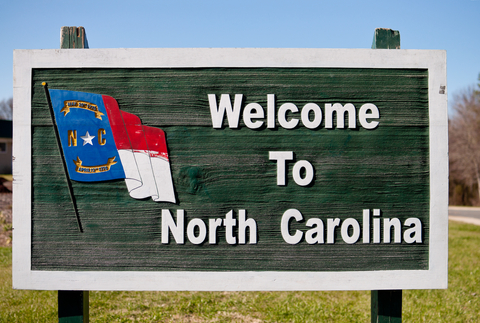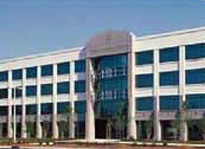
[Updated Oct 2020] A guide to executive suites and office space to rent in Durham NC as well as general information that may be useful if you are considering renting office space in Durham NC.
For further Durham NC offices information or to search office space to rent in Durham NC just click. Or contact us for any office space search inquiry.
History & Geography
The city of Durham is located amidst the rolling hills of the Piedmont region of North Carolina. It is the fifth-largest city in the state but has a cultural and economic presence out of proportion to its size. Durham is the seat of Durham County and has a population of approximately 230,000. The settlement of Durham was originally a small agricultural town and remained so for decades. Durham was a fairly important location for livestock drivers to stop and resupply. However, it was with the arrival of the railroad that Durham gained importance and experienced a population rise. Trains in the 19th century relied on wood to burn and a depot was needed between the cities of Raleigh and Hillsborough. Durham suited this need perfectly and soon Durham Station was established. During the civil war, the town was extensively looted by Union cavalry, and the surrender of the last great Confederate army under General Joseph E. Johnston was negotiated near the town. Both Union and Confederate troops smoked the local tobacco when stationed near the town, and soon Durham tobacco, lighter and more flavorful than other types, became famous. The town’s economy was given a large boost by its thriving tobacco industry and the success of its main tobacco grower, Bull Durham Tobacco Factory. Durham was incorporated in 1869 and ten years later the area around the town was named as Durham County. By the beginning of the 20th century, Durham had a virtual monopoly on the tobacco business in the US and the town was thriving. Additionally, the textile and energy industries became major parts of the city’s economy. During the mid 20th century, however, as with many other American cities, Durham’s manufacturing economy began a rapid downward spiral and the town experienced a long recession. However during the 1980s, Durham underwent significant refurbishment and regeneration, and today the city is a thriving economic and cultural hub.
Economy
Today Durham is the epicenter of the Durham-Chapel Hill Metropolitan Area. The median income for a household in the city is USD 41,160 and for a family is USD 51,162. Currently, the per capita income for Durham is USD 22,526. Approximately 15 percent of the population lives below the poverty line. The unemployment rate for Durham stands at 6.8 percent, below the average for the country, which is 9 percent. Today the economy of the city is vastly different from what it was during much of the 20th century. The industries of tobacco and textiles no longer dominate and the city has a fairly varied economy including many service industries. Among the companies headquartered in the city are pharma giant GlaxoSmithKline, IBM and Cree. Technology is one of the bulwarks of the economy and Durham is considered to have a large knowledge base. The proximity of Duke University, as well as North Carolina State University, ensures a large number of graduates are available for the industries based in the city. Additionally, one of the largest science parks in the country, Research Triangle Park, is located in Durham.
Tourism & Culture
Durham does not have a significant tourism industry, however, the city does have a thriving cultural scene and visitors will generally not be at a loss for things to do and see. The city hosts a number of festivals including many music events such as jazz festivals, blues festivals and symphonies. Among the most popular of Durham’s annual events is the Full Frame Documentary Film Festival, an annual Spring event dedicated to non-fiction movies. Durham also has a lively nightlife including a host of popular restaurants, bars and clubs. Most of these are grouped around the Ninth Street area and Brightleaf and University Drive. In 2005 the Nasher Museum of Art opened in Durham and has grown to become one of the most respected in the country. Durham is also known for its adherence to sports, mainly in the form of collegiate athletics. Duke University is famous for its successful teams, primarily its basketball squad, the games of which always attract a sizable turnout. The city also has its own baseball team, the Durham Bulls, who regularly attract crowds of thousands.
Transportation
Most residents and indeed visitors to Durham travel by private car and the city has a comprehensive system of private streets and highways. Unlike many large American cities Durham also has a large system of bicycle paths and is known as one of the most bike-friendly cities in the country. The city is served by Raleigh-Durham International Airport which is approximately 12 miles southeast of Durham. Over 4.5 million passengers pass through the airport every year. There is also a large Amtrak station in Durham which provides daily service to New York City and Charlotte. The city itself has a sizable bus network as well and there are discussions going on about expanding the public transport network with a light rail system, however, no decisions have been made.

Office space for rent in Durham NC
Currently, the average asking price for Class A office space in the Durham CBD is USD 17 per square foot. The city escaped relatively unscathed from the recession that has ravaged the country in the last few years, mainly due to its large technology industry and its plethora of other knowledge-based industries. The vacancy rate is currently hovering around 20 percent, though this is a reflection of a flight to quality recently more than anything else, and much of the empty office space is of low quality.
Our office space search, advisory and acquisition services are FREE, always. Our Durham NC office space brokers and agents are globally regulated by the Royal Institution of Chartered Surveyors (RICS) ensuring the highest standards of commercial property advice and service at all times.

The Office Providers are Regulated by the RICS